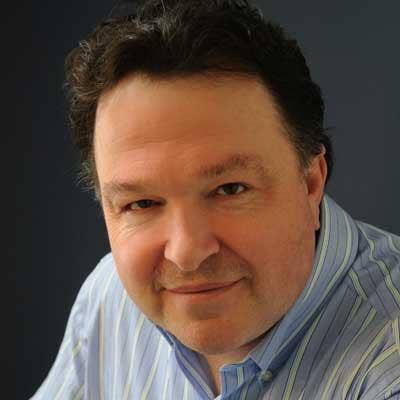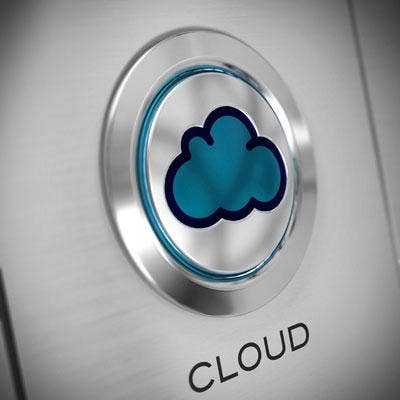Autotask Execs On Cloud: 'Where There's Chaos And Disruption, There's Opportunity'

Commenting On Cloud
Autotask CEO Mark Cattini (pictured) and Vice President of Product Management Pat Burns sat down with CRN to share their insights into how their client base is evolving to recurring revenues and picking up more cloud technologies. From their perspective as a vendor of cloud-based IT business management software, they have been able to see firsthand how their clients are evolving, saying that a third of contracts are now based mostly in managed services. Take a look at what they said about how the cloud is changing the business model for IT, and why they think it is a massive opportunity for solution providers, end users and Autotask.

Are people really picking up the cloud as quickly as you thought they would, or even they thought they would?
Burns: "Understandably, there's a lot of uncertainty I think, and some of the people you may talk to or read about are maybe a little bit intimidated by what's happening because it's disruption. It's technology that represents a different delivery model for technology, different business models, all sorts of repercussions. But where there's chaos and disruption, there's opportunity."

Why is the cloud an opportunity for solution providers?
Burns: "What we believe absolutely 100 percent is that this is a massive opportunity for our market, our target market, which is IT channel partners and IT technology service-centric organizations. The high level that I would describe it is that the cloud is a source of all sorts of new technology that is becoming more accessible to SMBs and SMEs. Millions and millions of small businesses have technology available to them that was not previously accessible ... That comes with all of these services that they can provide on top of it, and those are high-margin, sustainable managed services. Just like some service providers kind of don't know what to make of it, almost none of the actual end businesses do. That's the role that they play, the sort of trusted adviser."

Are you seeing most solution providers moving to recurring revenue?
Burns: "I would say we're seeing it as almost universal. They're not all magically, 100 percent converting over, but I believe almost all of them are migrating, so they're transitioning ... It's easy for us to see that because we get a lot of utilization data as we're 100 percent cloud. We can see contracts they're using, by far the contract mode in our system is a recurring contract, which is almost a 100 percent indicator that they're going to managed services. We can see the kind of services they're offering. I would say a third of our customers are predominantly managed services at this point, another third are hybrid. Even those that are not that focused, they're doing some of it."

Is Autotask as a company doing anything to help solution providers make the switch to recurring revenue?
Burns: "We exert a tremendous amount of effort with business building, consulting-type training. We have the Autotask Academy; we do webinars, all sorts of things to talk about what's happening in the market and how they can take advantage of it: how to price their services, how to model transitions, all sorts of things like that. Of course, the product itself, the solution is designed to make that easy for them. There is a lot of consultative-type programs that we have right now."

Is it important for vendors to get involved with solution providers who are transitioning their businesses?
Burns: "These are smart guys; they have really big successful businesses, they know what they're doing, but it's hard. They're trying to operate their business and then transform their business model, their services-delivery model at the same time. I don't think that's easy for anyone. There are many examples of disruptive technologies that are hard for even the biggest companies to deal with. Kodak was a blue chip company 30 years ago. They didn't adapt to digital photography. There's just numerous examples there. They need the help. They want the help."

From where is the most demand for cloud being driven?
Cattini: "We would say SMB. The demand for the SMB itself, as a vertical, demand is increasing. SMBs now have a chance -- it's just very easy for technology. It's almost like supply has created demand. Why would a 50-person legal firm want to worry about backups, and middleware and hardware? That's not what they do. It's just a URL and everything is taken care of. The scale and the expertise is part of it more and more. It's just so incredibly appealing to small organizations. I think the SMB world has really equalized its use of technology because it's affordable and accessible."

How does that SMB demand help Autotask?
Burns: "For us, we benefit not just from the fact that our solution itself is a cloud solution. That's certainly an advantage we have in our competency there, but our solution enables the cloud economy. Essentially, this whole dynamic that we're talking about -- all these smaller businesses and larger [ones] adopting these solutions -- that is being serviced by our customers using our tool. That's kind of the compound benefit we get from that."

Who benefits the most from the move to recurring revenue?
Cattini: "In terms of the move to managed services, generally speaking it isn't just because the suppliers of technology want it. Of course, they want a recurring revenue model. They want long-term contracts with recurring revenue. Then the supplier side of the market wants that. Just as aggressively, the demand side of the market wants that. The demand side doesn’t want to pay for a honking, great big server, all this middleware and a big license up front for a piece of enterprise software, and so on and so forth. It doesn't want that. It wants the same business model."

How is Autotask positioning itself to take advantage of the market?
Cattini: "I would just say it's product quality. We have a really rich, deep set of modules that are flawlessly integrated, delivered on a SaaS platform, targeted exactly as to how managed service providers or IT solution providers run their business. We've got all of this functionality, but we just want it to be accessible and efficient. We had this incredibly powerful platform; we have thousands of successful customers using this across the world, and I think the next step forward is just the next level of innovation. It's the BlackBerry to the iPhone. The BlackBerry is a great product, but it didn't look so good when the iPhone came along. I think it's going to make the prospects understand the power of what we have, and it's going to make our competitors run for the exits scared."

With all the changes going on in the industry, is Autotask approaching partners differently?
Cattini: "I don't think so. I think for us, it's business as usual. It is nice that we have a very definable value proposition: efficiency, accountability and intelligence. My view now in terms of anybody looking to upgrade their business to the next level of efficiency and intelligence in the IT services space, almost by definition looks at us now. I think we're at a point now, that's not to say that we can win every time, but I think it's almost impossible for them to raise their efficiency without it. That's a scale thing. We've been building this for 10 years and you only have to buy it once. My sense is that we're at the point where people fully understand, anyone in the digital market knows where to come. They might not always go to us, but they'll always look at us. I think we've established that as a vision in our key markets right now. It's a good place to be."

Can you talk about the growth Autotask has seen in the past few years?
Cattini: "I think the proof's in the pudding. Just over the last three years, and more or less, we're at about 150 percent growth ... obviously don't discuss revenues publicly, we are a private company, but we are a sizable company.
Burns: "It's all organic growth right now. One more thing that helps, we're 150 percent overall, but we've quadrupled our rate of customer acquisition. The intake of new business has quadrupled. Obviously the growth in the business is a function of what we had before that business as well."

What can we expect from Autotask going forward?
Cattini: "We're thinking of how to expand our value proposition, really formulated and ready. But I would say that core to everything is the product. The product is three things, it's the reliability of the platform itself and the uptime -- we are better than everybody in the SaaS industry. It really is about true functionality, delivering those three key things: efficiency, accountability and intelligence. On top of that it's all of the services that we wrap around that, our implementation and quality support services. Frankly, that's what our customers care about. That's what we're focused on, and we're focused on it in multiple geographies. And that's it. We're sticking to our knitting, doing what we do best, and we are the best at what we do."